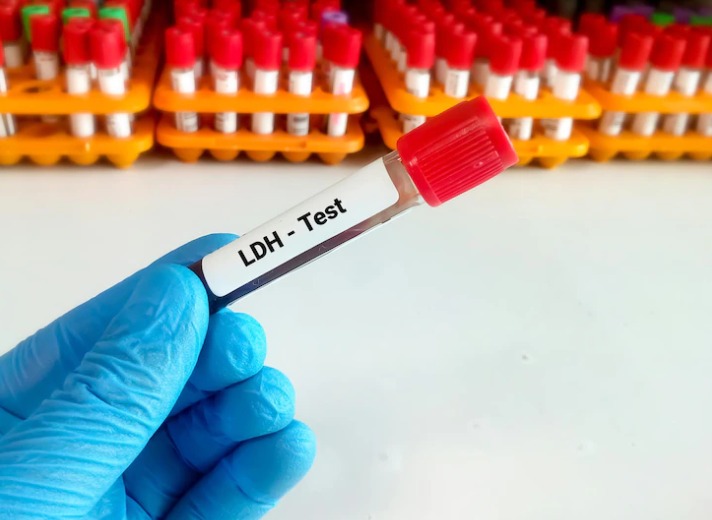The enzyme lactate dehydrogenase (LDH) is present in practically every cell in the body. The LDH blood test quantifies the blood’s level of LDH, which aids in the monitoring and diagnosis of a number of illnesses.
What Is the Need of LDH Blood Test?
Anaemia, liver illness, heart disease, infections, cancer, and tissue damage are just a few of the disorders for which the LDH blood test is used to assess the degree and course of medical conditions. In order to identify and track these disorders, the LDH level is frequently used in conjunction with further testing.
Outcomes:
Units per litre (U/L) are used to express the measurement of LDH in the blood obtained from the LDH blood test. Depending on the laboratory doing the test, normal LDH levels can change. However, LDH normal range include:
Adult men: 135 to 225 U/L
Adult women: 135 to 225 U/L
Children: 100 to 300 U/L
Depending on the type of LDH that is raised, elevated levels can signify a variety of medical issues. Each of the five subunits that make up LDH is present in a distinct tissue across the body. LDH is released into the bloodstream upon tissue destruction or damage, which raises LDH levels.
An increased level of LDH-1, for instance, could suggest harm to the heart, whereas an elevated level of LDH-2 might suggest injury to the lungs. While an elevated LDH-3 level may suggest muscle damage, an elevated LDH-5 level may suggest liver disease.
Ranges:
The LDH test’s normal range can change depending on the laboratory conducting the analysis. However, the following ranges are generally considered normal:
Adult men: 135 to 225 U/L
Adult women: 135 to 225 U/L
Children: 100 to 300 U/L
It is significant to remember that a variety of factors, such as age, gender, pregnancy, drugs, and medical conditions, might have an impact on LDH levels. Because of this, it’s critical to talk about your LDH levels with your healthcare professional in order to decide on the best course of action if your levels are abnormal.
Preparation:
There is no special preparation required for the LDH blood test. Any supplements or medicines you take, nevertheless, should be disclosed to your healthcare professional, as they may have an impact on the test’s outcome.
In conclusion, the LDH blood test is a straightforward procedure used to determine the concentration of LDH in the blood. Increased LDH is not necessarily a reason for concern, but it can be a sign of serious underlying diseases and disorders. As a result, it’s critical that you collaborate with your physician to determine the reason for your excessive LDH and treat any underlying conditions.
If you are engaging in intense training or exercise, be sure you are giving your body enough time to recover in between sessions.
